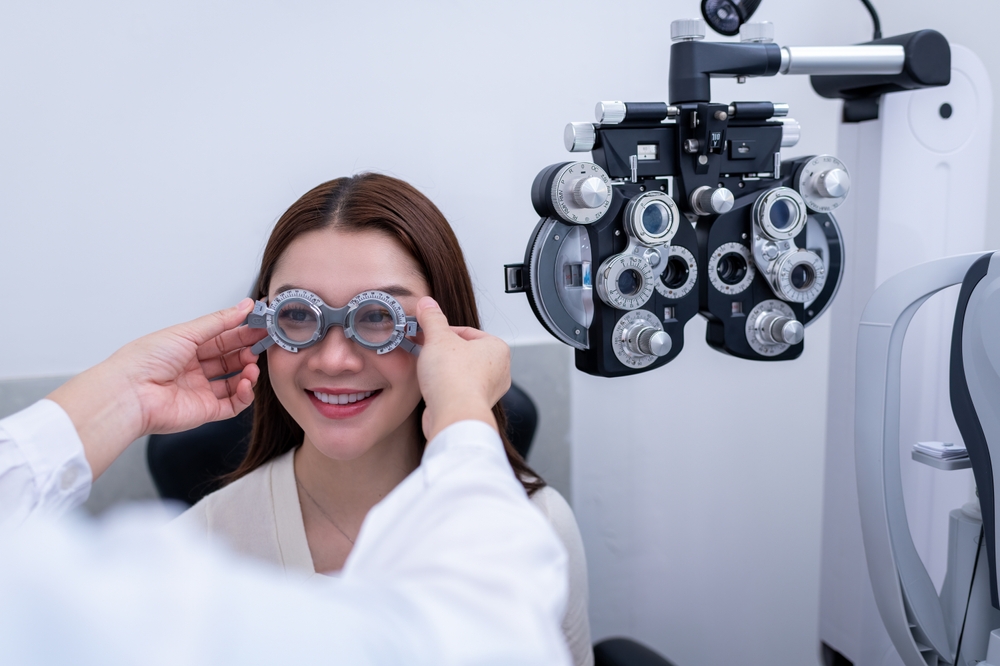
If you have diabetes, protecting your eyesight is just as important as managing your blood sugar. Diabetes can affect your eyes in ways that aren’t always obvious at first, but serious vision problems can develop over time if issues aren’t caught early. With early detection and advanced technology, you can stay ahead of potential complications and protect your vision for years to come.
How Diabetes Impacts Your Vision
Diabetes can cause several eye conditions that may threaten your vision, sometimes without noticeable symptoms until damage has already occurred. Some of the most common diabetic-related eye conditions include:
• Diabetic Retinopathy: This is the most common cause of vision loss among people with diabetes. High blood sugar levels can damage blood vessels in the retina, leading to bleeding, swelling, or abnormal blood vessel growth.
• Diabetic Macular Edema (DME): Fluid can leak into the macula, the part of the retina responsible for sharp central vision, causing swelling and vision distortion.
• Cataracts: People with diabetes are at higher risk of developing cataracts at a younger age, which can cause cloudy or blurred vision.
• Glaucoma: Diabetes increases the risk of glaucoma, a group of eye diseases that damage the optic nerve and can lead to vision loss or blindness.
The Importance of Annual Eye Exams
Annual eye exams are crucial for everyone with diabetes - even if your vision feels perfectly fine. Many diabetic eye diseases can develop and progress silently, without any noticeable symptoms in the early stages. This makes it easy to miss important warning signs until significant damage has already occurred.
Routine exams provide your eye doctor with the opportunity to spot subtle changes before you notice any symptoms yourself. Early detection means that problems can be addressed in their earliest and most treatable stages, often preventing more serious issues down the line.
Ongoing monitoring is also essential since diabetes is a lifelong condition. Annual eye exams allow your care team to closely track the health of your eyes over time, giving them the information they need to adjust your treatment plan and respond quickly to any changes.
When diabetic eye conditions are detected early, treatment tends to be much more effective. This proactive approach helps preserve your vision and greatly reduces the risk of serious complications.
What to Expect During Your Diabetic Eye Exam
At Gulfcoast Eye Center, we make sure every diabetic eye exam is thorough, comfortable, and designed to give you peace of mind. Here’s what you can expect:
• Comprehensive Assessment: Your doctor will review your medical history and check your vision.
• Dilated Eye Exam: Special drops widen your pupils, allowing your doctor to examine the back of your eye, including the retina and optic nerve, for any early signs of diabetic damage.
• OCT Plus Technology: We use advanced Optical Coherence Tomography (OCT Plus) imaging to capture detailed, cross-sectional images of your retina. This non-invasive technology helps detect even the smallest changes, often before you experience symptoms.
• Personalized Plan: After your exam, you’ll receive a complete review of your eye health and recommendations for ongoing care or treatment if necessary.
Protect Your Sight at Gulfcoast Eye Center
Living with diabetes doesn’t mean you have to accept vision loss as inevitable. With regular, diabetic eye exams, you can protect your sight and catch problems before they become serious.
Schedule your annual diabetic eye exam at Gulfcoast Eye Center and take a proactive step toward preserving your sight. Visit our office in Sarasota, Florida, or call (941) 207-7700 to book an appointment today.






